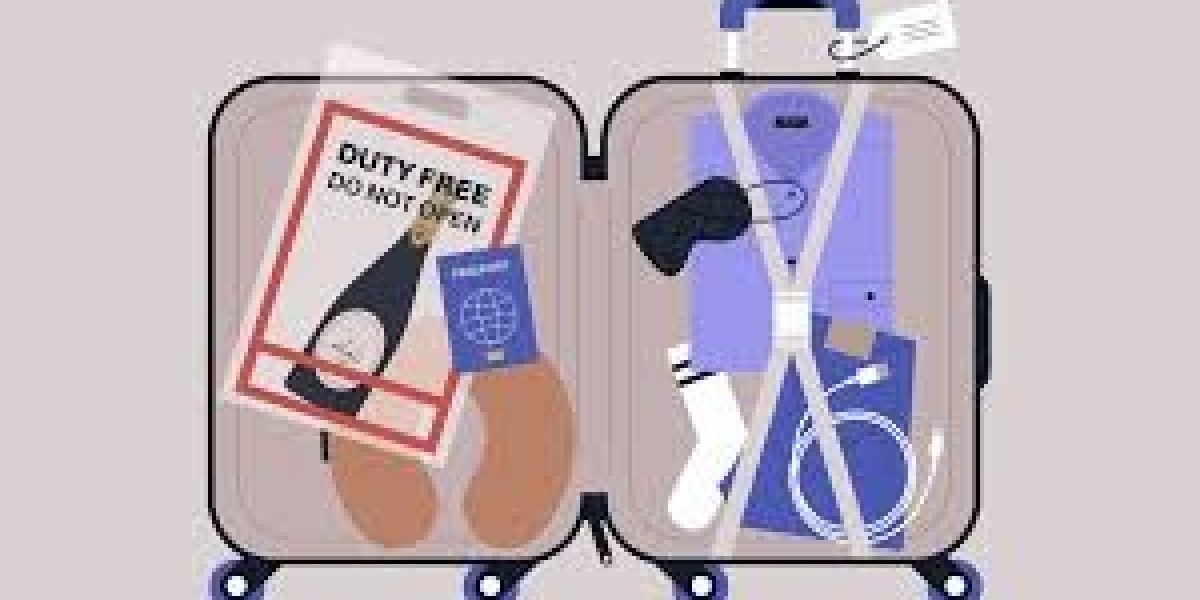When it comes to air travel, one of the most common frustrations passengers face is unexpected fees for baggage. Airlines often have complex bag policies that can catch you off guard if you're not careful. For those planning a trip with Allegiant Air, understanding the Allegiant Bag Policy is crucial to avoiding these extra costs. Whether you're heading out on a vacation or a business trip, knowing the rules about carry-ons, personal items, and checked luggage can save you money and make your journey more enjoyable.
In this blog, we'll break down the Allegiant Bag Policy in detail, helping you navigate the ins and outs of their baggage rules. Whether you're a frequent flyer or new to Allegiant, this guide will ensure that you travel smart and avoid those unnecessary baggage fees.
Understanding the Allegiant Bag Policy
Allegiant Air is known for its budget-friendly fares, but like many low-cost airlines, it charges extra fees for things like checked bags and carry-on luggage. This means that if you're not familiar with the Allegiant Bag Policy, you could end up paying more than you expected. To avoid surprises, it’s important to know the size and weight limits for each type of baggage and plan accordingly.
Personal Items vs. Carry-On Bags
The first thing to understand about the Allegiant Bag Policy is the distinction between a personal item and a carry-on bag.
Personal Items: Allegiant allows one free personal item per passenger. This can be a small backpack, purse, laptop bag, or briefcase. The size limit for personal items is 7 inches high x 15 inches wide x 16 inches long. As long as your bag fits these dimensions, you won’t incur any additional charges.
Carry-On Bags: If you need a larger bag, Allegiant offers a paid option for carry-on luggage. The size limit for a carry-on bag is 9 inches high x 14 inches wide x 22 inches long, and it must fit in the overhead bin. There is a fee to bring a carry-on bag onboard, and the price depends on when you purchase it. The earlier you add a carry-on to your booking, the cheaper the fee.
It’s important to remember that these size limits are strictly enforced. If your carry-on bag is too large or if you exceed the allowed dimensions for your personal item, you’ll be asked to check your bag and pay the corresponding fee.
Fees for Checked Luggage
Checked luggage is where travelers often face the most confusion with Allegiant’s bag policies. Unlike other airlines that may include checked bags in the cost of the ticket, Allegiant charges for every checked bag. The fees for checked bags are tiered based on the weight and the number of bags you bring.
First Checked Bag: The fee for the first checked bag is typically around $18 to $40, depending on how early you purchase it. Booking your checked bag in advance will usually save you money compared to paying at the airport.
Second Checked Bag: If you need to check a second bag, expect to pay a higher fee, which generally ranges from $30 to $45.
Third or More Checked Bags: Allegiant has a limit of three checked bags per passenger, and each additional bag comes with an extra fee, usually between $50 and $75.
Weight and Size Restrictions for Checked Bags
In addition to the number of checked bags, Allegiant has specific weight and size restrictions for each piece of checked luggage. Here’s what you need to know:
Maximum Weight: The maximum weight for checked luggage is 40 pounds (18 kg). If your bag exceeds this weight, you’ll face an overweight fee, which can be as high as $50 per bag.
Maximum Dimensions: The maximum dimensions for checked bags are 80 linear inches (length + width + height). Bags that exceed these dimensions will not be accepted, and you may need to repack or check them with an additional fee.
Special Items and Oversized Luggage
If you’re traveling with special items like sporting equipment, musical instruments, or oversized luggage, Allegiant has specific rules for these as well. These items typically require special handling and may incur additional fees.
Sports Equipment: Allegiant allows you to bring sports equipment like skis, golf clubs, and bicycles. The fees for these items vary, but they generally range from $50 to $75, depending on the size and weight.
Musical Instruments: If you're traveling with a musical instrument, you can bring it on board as either a personal item or carry-on, as long as it fits within the size limits. Larger instruments, such as guitars or cellos, may require a separate seat, which you will need to purchase.
Oversized Luggage: For any luggage that exceeds the standard size or weight limits, you’ll need to pay an oversized baggage fee. This can be quite expensive, so it’s best to avoid packing anything that might push your luggage beyond the allowed dimensions.
How to Avoid Extra Baggage Fees
Now that you understand the different types of bags and the associated fees, here are some tips for avoiding those extra baggage costs when flying with Allegiant:
Pack Light: The easiest way to avoid baggage fees is by packing light. Stick to a personal item and try to fit everything you need into it. If you can manage with just a small bag, you won’t have to worry about additional charges.
Pre-Purchase Your Bags: If you do need to check a bag or bring a carry-on, purchase your bags online when you book your flight or at least before you check-in. Allegiant’s baggage fees are typically cheaper when you buy them in advance rather than at the airport.
Avoid Overweight Bags: Keep an eye on the weight of your bags. Use a luggage scale at home to make sure your checked luggage stays under the 40-pound limit. You’ll save money by avoiding overweight fees.
Use a Duffel Bag: If you have to check a bag, consider using a soft-sided duffel bag rather than a rigid suitcase. Duffel bags are often easier to fit into the baggage compartments and may help you avoid oversized luggage fees.
Consider Upgrading to a Bundle: Allegiant offers bundles that include various perks, such as priority boarding, a checked bag, and other amenities. If you’re planning to check luggage and want to avoid the hassle of paying for it separately, these bundles may provide value.
Conclusion
The Allegiant Bag Policy is straightforward, but it's important to know the rules before you go. By understanding the different types of baggage, fees, and restrictions, you can avoid unnecessary costs and travel smarter. Whether you need a small personal item or multiple checked bags, planning ahead is key to staying within the limits and saving money.
Remember, Flightaura is here to help you with all your travel needs, including understanding baggage policies for different airlines. By staying informed about the Allegiant Bag Policy, you’ll be able to enjoy a smoother, more cost-effective journey on your next flight.









